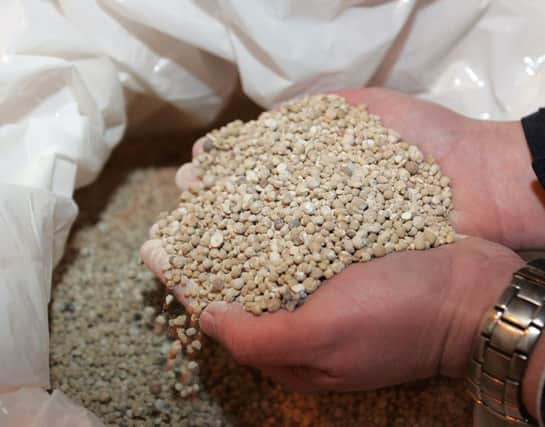Take back control of weed infestations


Weeds not only compete with crops for moisture and nutrients, but also interfere with light interception of grass, resulting in reduced yield and forage values.
In fact, infestations from weeds such as chickweed and broad leaved docks can reduce ryegrass dry matter production by as much as 50% - a massive cost to farmers.
Advertisement
Advertisement
The additional feed cost of replacing lost grass production from a light 5% weed infestation with a high energy concentrate could be as much as £40 per acre for a 7.5 tonne dry matter grass silage crop and that doubles again for a 10% weed infestation.
When tackling weed infestations in grass swards, we first look to cutting or spraying weeds with pesticides to limit impact.
These practices are time consuming, expensive and generally aren’t as effective as preventing weeds from taking hold in the first place. In reality, chemical and mechanical control of weeds treats the symptoms and not the underlying cause of high weed populations.
Given the vast number of tasks involved in farming, weeds often establish in grass swards due to the lack of attention paid to sward and soil management, as other tasks take priority.
Advertisement
Advertisement
When weeds become an issue in grass swards, begin taking control by correcting the soil pH. Recent studies have shown weed populations were as much as 4100 weeds lower per acre from just a 1 unit increase in soil pH.
Given what we’ve learnt, lime is the most important fertiliser you can use on your farm. Lime is the easiest and most cost effective way to improve soil health and nutrient availability.
Ensuring that soil pH is at target levels between 6.3 and 6.5 will release more phosphorus and other nutrients into soil- significantly boosting growth of grass dry matter.
This message has been around for decades, and it is as important to profitability now as it was in the past; but many farmers don’t follow this advice. Ensuring soil pH is at target levels ensures more fertile land. Fertile land grows more grass with less competition from weeds and is a huge contributor towards profitability.
Advertisement
Advertisement
Use of a Granular-Lime - such as G-Lime - is an ideal solution for farmers looking to correct and maintain soil pH. Just 50 kilograms per acre will raise soil pH by 0.1, making it easy for farmers to look at their soil samples and apply a precise amount to raise pH to their target between 6.3 and 6.5. Once they reach target, 50 – 100 kilograms per acre is often all that is required for maintenance.
By maintaining soil pH at target with G-Lime, soils are healthier, with less weed competition, more productivity and higher quality.
Additionally, fields don’t experience the peaks and valleys of production and quality associated with conventional agricultural lime applications which tend to be applied years apart. Therefore, fields treated with G-Lime annually, are maintained at target pH and potentially less susceptible to weed infestations. Further, fields treated with G-Lime have a limited amount of soil compaction in comparison to fields treated with conventional agricultural lime.
G-Lime - available through John Thompson and Sons - is a unique, fast acting soil conditioner, specially formulated to help manage soil pH and improve soil fertility. G-Lime can be spread using a conventional fertiliser spreader and begins to work immediately, with a full reaction in four to six weeks. G-Lime is ideal for neutralising acidic soils and increasing nutrient uptake, resulting in improved fertiliser use efficiency and healthier soils, thereby allowing for higher yields and crop quality.
Contact John Thompson and Sons on 02890351321 to find out how you can use Granulated-Lime to your benefit this growing season.